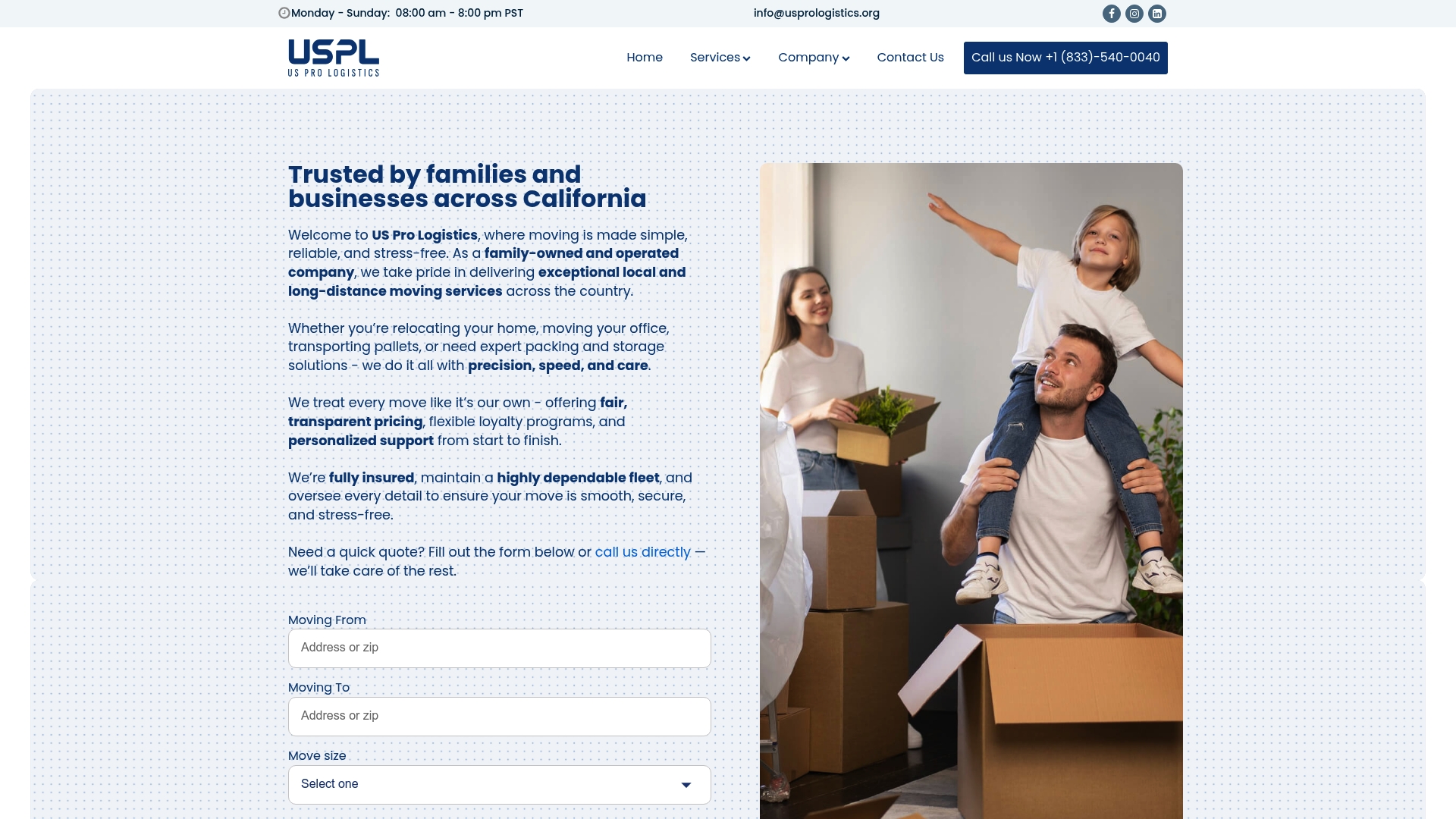
Employee relocation policies might sound like just another HR checklist. But nearly 70 percent of employers offer some form of relocation assistance, showing how much these programs shape entire careers and companies. The real surprise is that these policies do much more than cover moving costs – they actually drive talent acquisition, ensure smoother personal transitions, and give organizations a strategic edge in a competitive world.
| Takeaway | Explanation |
|---|---|
| Employee relocation policies support workforce mobility. | These policies provide guidelines for managing employee relocations, ensuring fairness and organization during moves. |
| Clear financial guidelines are essential. | Effective policies outline reimbursement for moving expenses, transportation, and housing provisions, promoting transparency and support. |
| Holistic support improves employee experiences. | Policies should address emotional and professional challenges, enhancing job satisfaction and reducing stress during relocations. |
| Tailored strategies enhance industry adaptability. | Companies must develop relocation frameworks that consider unique sector requirements, fostering agility and employee retention. |
| Compliance with local regulations is crucial. | Robust policies integrate legal and financial requirements, ensuring adherence to state laws and effective management of relocation expenses. |
Employee relocation policies represent comprehensive guidelines that organizations develop to manage and support employee transfers between different work locations. These policies outline the financial, logistical, and administrative procedures for relocating employees, ensuring a structured and fair approach to workforce mobility.
At their fundamental level, employee relocation policies serve as formal frameworks that define how companies handle geographic moves for their workforce. According to Penn State University’s HR Policy, these policies establish clear parameters for covering relocation expenses, which can be authorized at the discretion of the hiring unit to assist new or transferring employees with moving costs.
Key components typically included in comprehensive employee relocation policies involve:
The table below summarizes the main components typically found in comprehensive employee relocation policies, providing a clear side-by-side look at the types of support organizations offer.
| Component | Description |
|---|---|
| Financial Reimbursement Guidelines | Policies outlining what relocation expenses can be reimbursed |
| Transportation and Moving Coverage | Support for travel, moving services, and shipping of belongings |
| Temporary Housing Provisions | Short-term housing assistance during transition |
| Travel Allowances | Stipends or reimbursements for transportation to the new location |
| Family Integration Support | Assistance such as counseling, spouse employment help, and schooling |
| Career Development Resources | Guidance to support professional advancement during relocation |
Beyond mere logistical management, employee relocation policies play a critical strategic role in talent management and organizational growth. By providing clear, supportive frameworks for geographic transfers, companies can:
These policies also reflect an organization’s investment in its workforce, signaling that the company values employee growth and is willing to support significant career transitions. Read more about our comprehensive moving strategies to understand how professional logistics can simplify complex relocation processes.
Ultimately, well-crafted employee relocation policies transform what could be a challenging personal and professional transition into a structured, supportive experience that benefits both the employee and the organization.
Employee relocation policies represent more than bureaucratic guidelines. They are strategic tools that significantly impact both organizational effectiveness and individual employee experiences. Understanding their broader implications reveals why these policies are crucial for modern businesses and workforce dynamics.
For businesses, comprehensive relocation policies serve as powerful talent management instruments. According to Society for Human Resource Management, these programs go beyond simple moving expenses and encompass complex support mechanisms. Strategic relocation policies enable companies to:
From an employee perspective, well-structured relocation policies transform potentially stressful transitions into supported professional journeys.
Comprehensive policies acknowledge that moving is not just a logistical challenge but a significant life event. Research indicates that employees whose relocations are professionally managed experience:

Explore our comprehensive moving strategies to understand how professional logistics can transform complex relocations into smooth, supportive experiences.
Ultimately, employee relocation policies represent a critical intersection between organizational strategy and individual human experience. By recognizing and addressing the multifaceted challenges of geographic workforce mobility, businesses can create win-win scenarios that benefit both the company and its most valuable asset: its people.
This table highlights the primary business benefits and the personal/professional advantages for employees resulting from robust employee relocation policies.
| Stakeholder | Benefit Category | Example Benefits |
|---|---|---|
| Business | Economic & Strategic | Attracts top talent; internal mobility; reduces recruitment costs |
| Business | Professional Commitment | Demonstrates investment in employee growth; strengthens loyalty |
| Employee | Personal Well-being | Reduced stress; improved work-life balance; family support |
| Employee | Professional Growth | Enhanced career development; supported transitions; increased job satisfaction |
Effective employee relocation policies represent sophisticated frameworks that balance organizational needs with individual employee support. These comprehensive strategies encompass multiple dimensions beyond simple transportation logistics, addressing the complex human and professional aspects of geographic workforce transitions.
The foundational components of robust relocation policies center on providing comprehensive financial and logistical assistance. Organizations must develop clear, transparent guidelines that address various aspects of employee movement. According to Society for Human Resource Management, these mechanisms typically include:
Beyond financial considerations, sophisticated relocation policies recognize the profound personal impact of geographic transitions. Holistic policies extend support beyond mere monetary compensation, addressing the emotional and professional challenges employees and their families encounter. This comprehensive approach might involve:
Discover our tailored moving transition strategies to understand how professional logistics can transform complex relocations into seamless experiences.
Ultimately, effective employee relocation policies serve as strategic tools that demonstrate an organization’s commitment to its workforce. By developing nuanced, empathetic frameworks that address both practical and personal relocation challenges, companies can transform potentially stressful transitions into opportunities for professional growth and organizational loyalty.
Employee relocation policies serve as critical navigational tools that transform complex geographic transitions into structured, supportive experiences. By anticipating and addressing potential challenges, these policies create comprehensive frameworks that minimize disruption and maximize employee comfort during significant professional moves.
Successful relocation policies recognize that moving involves more than physical transportation. According to Society for Human Resource Management, effective transitions require holistic strategies that address multiple dimensions of employee mobility. These strategies typically focus on:
The most effective relocation policies implement multi-layered support systems that extend far beyond basic moving expenses. These sophisticated approaches transform potentially overwhelming transitions into manageable, even exciting professional opportunities. Comprehensive support mechanisms often include:
Explore our advanced moving transition strategies to understand how professional logistics can transform complex relocations into seamless, stress-free experiences.
Ultimately, well-designed employee relocation policies function as strategic investments in workforce stability and individual employee success. By demonstrating genuine commitment to employee well-being during transitions, organizations can foster greater loyalty, reduce turnover, and create positive, transformative professional experiences.
California’s dynamic business landscape presents unique challenges and opportunities for implementing sophisticated employee relocation policies. The state’s complex economic ecosystem demands nuanced approaches that balance organizational needs with employee well-being, particularly in technology, entertainment, and innovation-driven industries.
California’s diverse economic sectors require customized relocation frameworks that reflect the distinctive characteristics of different industries. According to Sacramento State University’s relocation guidelines, effective policies must consider specific organizational requirements. Different sectors typically implement tailored strategies:
California’s unique regulatory environment demands meticulous attention to legal and financial dimensions of employee relocation. Successful policies integrate complex compliance requirements with employee-centric support mechanisms. Key considerations include:
Discover our California-specific moving transition approaches to understand how professional logistics can navigate the state’s unique relocation landscape.
Ultimately, real-world employee relocation policies in California represent sophisticated strategic tools that enable organizational agility while prioritizing individual employee experiences. By developing adaptive, comprehensive frameworks, businesses can transform geographic transitions into opportunities for growth, innovation, and professional development.

Are you facing the complexities outlined in “Understanding Employee Relocation Policies for a Smooth Move”? Whether you are responsible for crafting policy or preparing for a major move, the emotional and logistical hurdles are real. Navigating finances, moving logistics, family concerns, and compliance can feel overwhelming. These are the challenges that comprehensive relocation support is designed to solve.

Let US Pro Logistics help you turn these challenges into smooth opportunities. Our team is known for reliability, care, and personalized moving solutions throughout California and nationwide. Discover detailed services including office, government, residential, and specialty moves on our US Pro Logistics website. Read what satisfied clients say about their stress-free transitions, and explore tips in our office relocation planning guide for a seamless process. If you value transparency, attention to detail, and real peace of mind, now is the time to request your free custom quote. Start your relocation journey with a partner who transforms complex moves into smooth moves every time.
Employee relocation policies are formal guidelines that organizations develop to manage and support employee transfers between different work locations, outlining procedures for financial, logistical, and administrative aspects of moving.
These policies are crucial as they help attract top talent, facilitate internal mobility, reduce recruitment costs, and demonstrate the company’s commitment to employee professional growth and stability.
Key components typically include financial reimbursement guidelines, transportation and moving expense coverage, temporary housing provisions, travel allowances, and support for family integration and career development resources.
Well-structured policies help reduce stress associated with moving, enhance job satisfaction, and provide support mechanisms to aid in career development and work-life balance, ultimately transforming a challenging transition into a smoother experience.
USDOT 3664256 This number is required for any company that operates commercial vehicles in interstate commerce (across state lines). It helps identify and track the safety performance and compliance of transportation companies.
MC 1268070 This number is specifically for companies involved in the transportation of goods or passengers for hire across state lines. It’s necessary for carriers operating in the moving industry and ensures they are authorized to operate as interstate carriers.